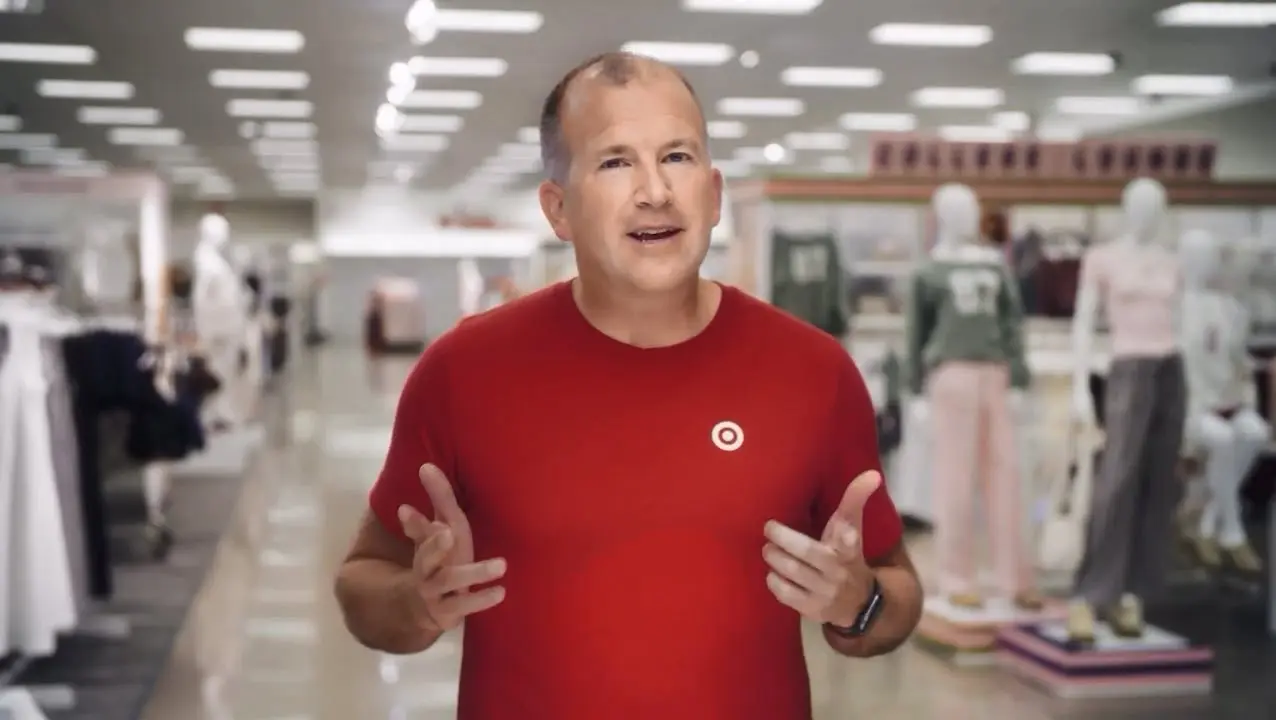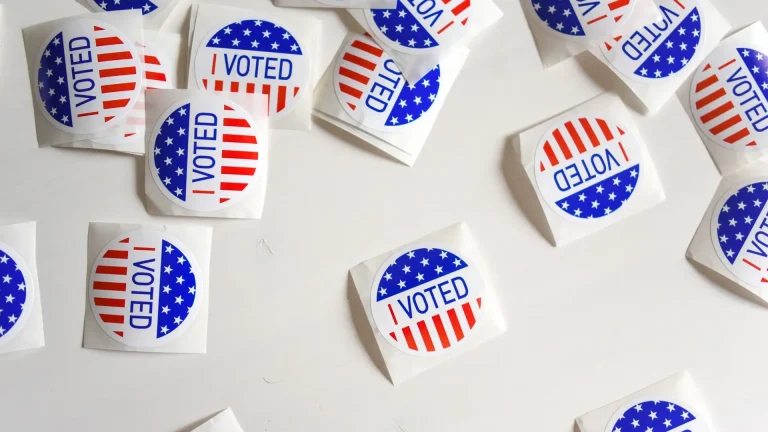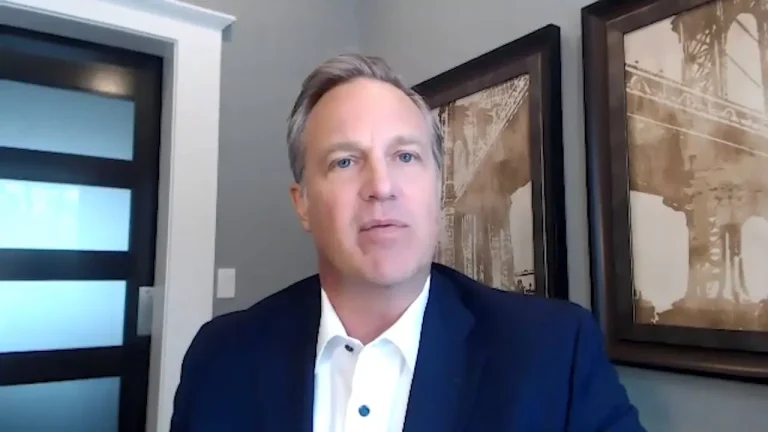Target Gets a New CEO as Opinions on Corporate Activism Shift
Consumers have dinged the retailer for its pullback on DEI. Their expectations are different for Target than other companies.
The new chief executive of Target takes over a retailer beset by a boycott because it dropped its DEI goals, a protest that his predecessor has admitted is reducing customer visits to its stores and cutting into sales.
The boycott isn’t the biggest problem confronting Michael Fiddelke. Last week, the Target lifer saw his company’s stock fall 6% on the day his promotion was announced. He will succeed Brian Cornell starting next year. After nearly three years of slumping sales, investors are seemingly worried that Fiddelke’s hiring means that a change in strategy isn’t likely.
Led by Cornell since 2014, Target became a leader in corporate diversity efforts after the 2020 murder of George Floyd, which took place 20 minutes from its Minneapolis headquarters. Now, Target is an example of companies’ retrenchment amid the Trump administration’s crackdown on Diversity, Equity and Inclusion programs.
Public relations and internal communications teams should study Target closely. Surveys suggest DEI isn’t likely to go away forever, despite President Donald Trump’s condemnation.
A new survey by a leading polling firm suggests the public’s attitude toward companies taking positions on social issues may be changing. We’ll look at that report and then at the reason why Target has been dinged by customers for its DEI retreat.
What people want
The proportion of U.S. adults who say companies should take public stances on current issues leaped to 51% this year, up from 38% in 2024, according to the 2025 Bentley University-Gallup Business in Society survey released this month. The jump comes after several years of declining support for companies speaking out.
But that still leaves 49% of those polled saying companies should not take positions, Gallup notes. Yet support for businesses speaking out rose on all 12 of the topics that Gallup surveyed. For example, 49% said that companies should take a public stand on racial issues, up from 43% in 2024 and 45% in 2023,
The dramatic uptick could be a reaction to Trump. His job approval ratings have fallen to 37%, Gallup says. That approaches the lowest approval rating during his first term. The rating reached 34% just before he left office in January 2021.
The resurgence of support for corporate comments on current events comes with a caution. Among workers, 60% say they don’t think their employer, in general, should communicate a stance to employees on current events, the Bentley-Gallup survey finds. Yet that overall result masks a divide.
What’s good for the gander isn’t good for the goose, according to these workers.
Split audience
At least half of younger, Black, Hispanic, or Democratic employees want to hear from their employers on current events, the survey finds.
Meanwhile, if most workers don’t want their employer to comment on current events. that’s what some internal communicators are doing.
Nine out of 10 companies say they “regularly weigh in on social and political issues — and how they affect the business — with employees,” according to a survey of 508 internal communications leaders released last week by consulting firm Shallot Communications.
The key there may be issues that “affect the business.” Without a connection to the success of the enterprise, public stands may seem gratuitous.
Culture wars
After Floyd’s murder, Cornell said “that could have been one of my Target team members.” The company quickly announced ambitious goals to increase Black employees and suppliers, and to promote LGBTQ+ causes.
The first skirmish in culture wars came in 2023 when Target’s Pride-themed merchandise sparked a conservative backlash. Target pulled some Pride-themed products off the shelves and hid others away, which in turn prompted an outcry by supporters of LGBTQ rights.
Meanwhile, the retailer, known for its on-trend, affordable apparel, began losing its touch with its customers. It also flubbed at the fundamentals of retailing. Stores looked disheveled. Key items were out of stock or locked up in cabinets. Checkout lines grew long.
Rollback
Many big employers, such as Walmart, Amazon and McDonalds retreated from their DEI programs after the election of President Donald Trump.
Target joined the trend In January 2025. The announcement was made by Kiera Fernandez, an executive vice-president and chief community impact and equity officer, a possible sign that Cornell didn’t appreciate the significance of the move.
In February, Rev. Jamal Byrant, the pastor of a congregation in suburban Atlanta, announced a boycott that has gained momentum. Target’s weak performance has amplified the impact.
Cornell acknowledged that the “reaction” to the DEI rollback was one of four reasons for slowing sales and foot traffic, during a conference call in May with analysts. The other factors were high inflation, declining consumer confidence and concern about tariffs.
Why has Target has been hurt by stepping back on DEI while other major employers have not? It’s likely because of different expectations.
“If a company has a history of speaking out, or visible cues, like a diverse leadership team, people expect it to engage,” Tyler Wry, a professor at the Wharton School of the University of Pennsylvania, said this month. He was describing the results of his research and not Target specifically.
Meet the new boss
When Target promoted Fiddelke, 49, on Aug. 20, 2025, it reported its 11th straight quarter of flat or declining sales. He joined the company in 2003 as an intern, becoming chief financial officer in 2019 and chief operating officer in January 2024. He has yet to address Target’s DEI programs.
When Fiddelke moves into the CEO’s office on Feb. 1, Cornell will become executive chairman, intensifying investors’ concerns that big changes are not in store.
Like investors and customers, Target employees are also frustrated. About 40% of employees said in June that they did have confidence in the company’s future, according to a companywide survey that received about 260,000 responses, The Wall Street Journal reported. Target has more than 400,000 employees.
If the pendulum is swinging back, as the Bentley-Gallup survey suggests, then executives and their corporate comms teams will need a framework to decide when to speak out more than ever.
One such approach is the Depth Model, developed by DEI trainer Janet M. Stovall and Kim Clark, an affiliate consultant of Ragan Consulting Group.
Maybe Target’s leaders have learned there’s something worse than taking a stand on DEI that’s unpopular with some customers: Inconsistency.
Tom Corfman is a senior consultant with Ragan Consulting Group where he leads the Build Better Writers program. Want to learn more about the DEPTH Model and talk to Kim Clark? Email Tom to schedule a free, 30-minute conversation.
Follow RCG on LinkedIn and subscribe to our weekly newsletter here.







